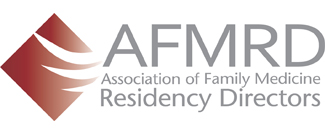CAFM Consensus for Procedural Training
CAFM Consensus Statement for Procedural Training in Family Medicine Residency
Procedure Competency Assessment Tools
For complete text, please click on the links above.
Procedural skills are expected of all family medicine residency graduates. The Accreditation Council for Graduate Medical Education Review Committee for Family Medicine (RC-FM) in its 2014 revision of the Family Medicine requirements FAQ (frequently asked questions), stated that national organizations of family medicine should develop training guidelines for procedural training for the specialty.¹ A task force was convened with the support of the Association of Family Medicine Residency Directors (AFMRD) that included experienced faculty and program directors from across the country and CAFM member organizations. This consensus report represents the collective wisdom of experienced educators building upon a foundation of established literature and existing standards in determining best practices for informing what defines procedural competency.
The task force recognized that family physicians in practice may perform a wide range of procedures, and that there is significant variance among physicians-in-training for procedural skills. This variance may lead to confusion among employers, credentialing bodies, and patients about what services a trained family physician should be able to provide. Using procedure taxonomy that the STFM Group on Hospital Medicine and Procedural Training previously defined,² ³ as well as data from the American Academy of Family Physicians membership survey regarding the scope of procedures performed in practice, ⁴ the task force recommends a core list of procedures that family physicians should be able to perform at the completion of their residency. The task force also recommends a set of standardized criteria to be used for measuring competency in these procedures and has developed tools program directors and residency faculty may use to do so.
This consensus statement is intended as a roadmap to excellence for residency program directors to use in curriculum development and resident assessment. It is understood there are both local and regional differences in training that would affect how a program would apply these recommendations. These recommendations are not intended to supersede residency program directors’ own judgment. They also are not designed to influence either hospital privileging of procedures or program requirements outlined by the Accreditation Council for Graduate Medical Education Review Committee for Family Medicine (ACGME RC-FM). However, this statement should be used as a framework to study procedural competence and allow for cross-residency research and collaboration.
1. ACGME Review Committee for Family Medicine. Frequently Asked Questions: Family Medicine. ACGME Website. 2014. http://www.acgme.org/acgmeweb/Portals/0/PDFs/FAQ/120_family_medicine_FAQs_07012014.pdf. Accessed November 13, 2014.
2. Nothnagle M, Sicilia JM, Forman S, et al. Required procedural training in family medicine residency: a consensus statement. Fam Med. 2008;40(4):248-252.
3. Kelly BF, Sicilia JM, Forman S, Ellert W, Nothnagle M. Advanced procedural training in family medicine: a group consensus statement. Fam Med. 2009;41(6):398-404.
4. Table 12: Clinical Procedures Performed by Physicians at their Practice (as of June 30, 2014).
